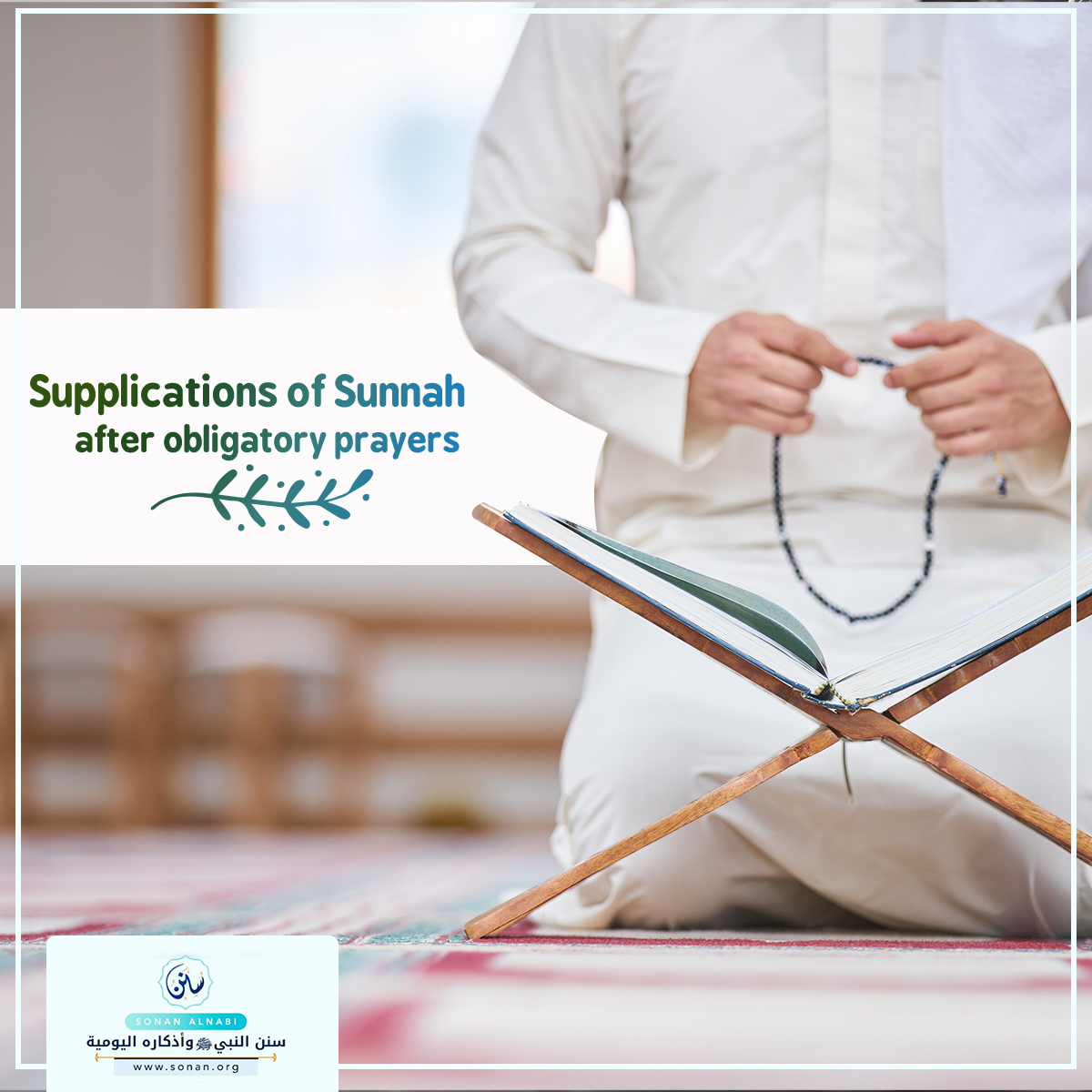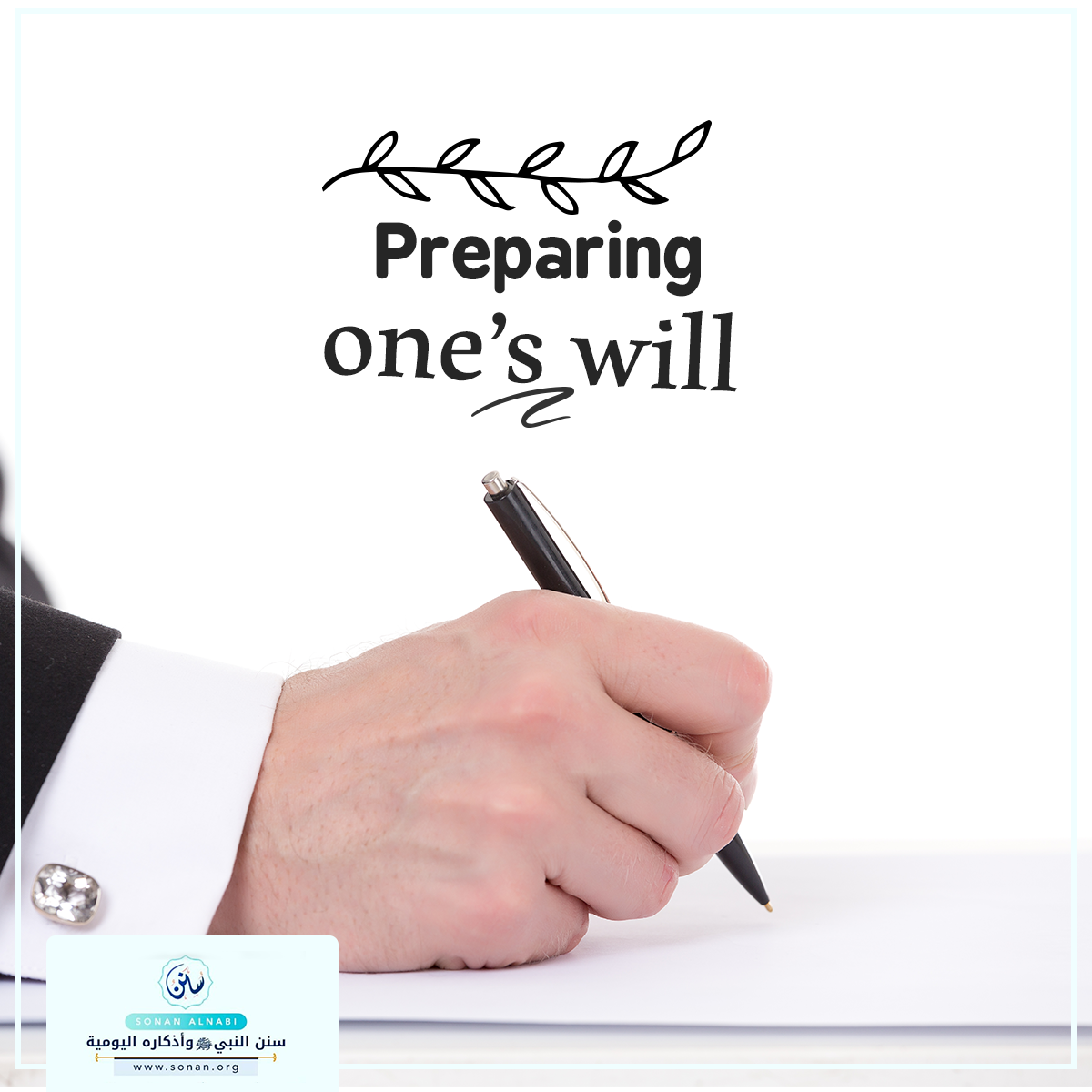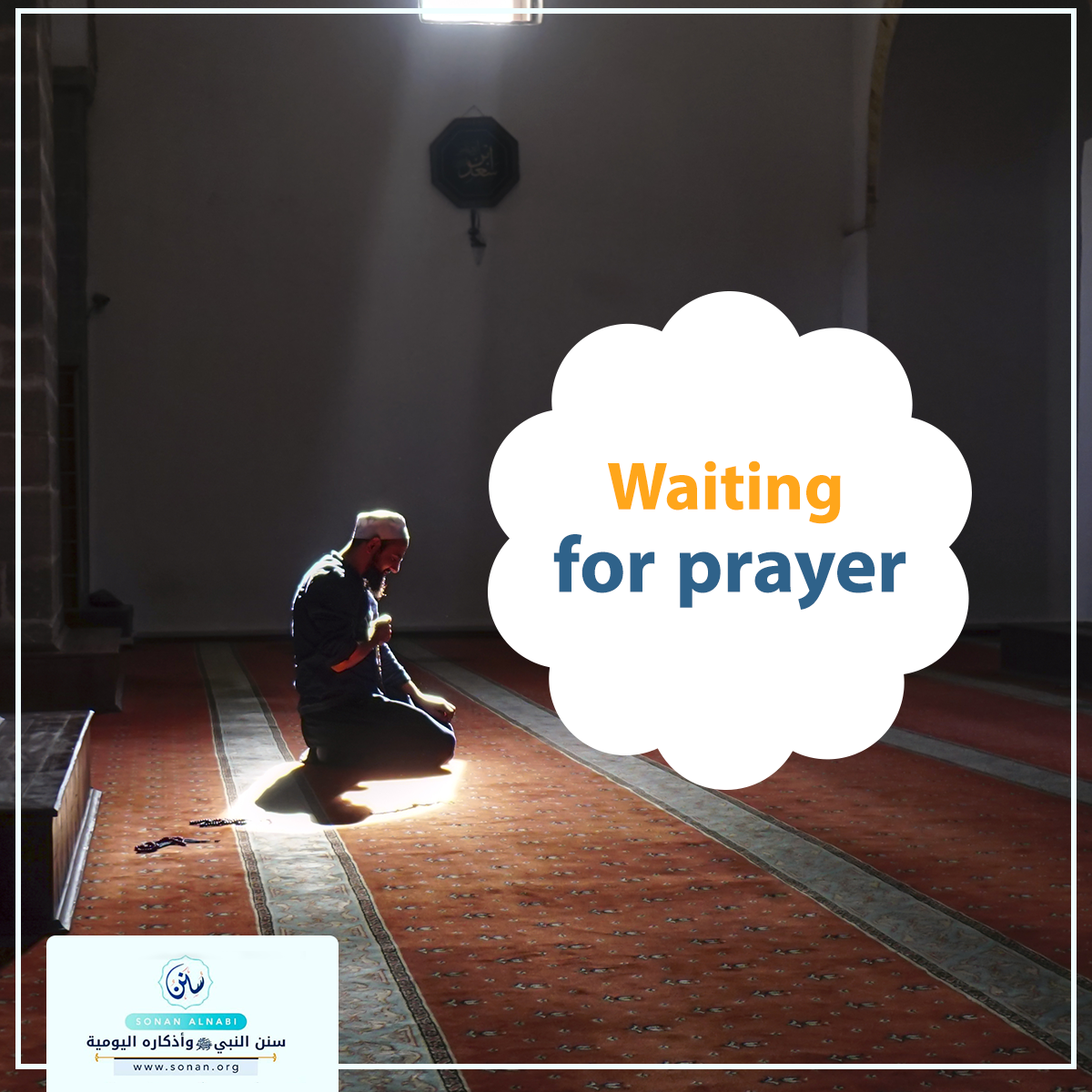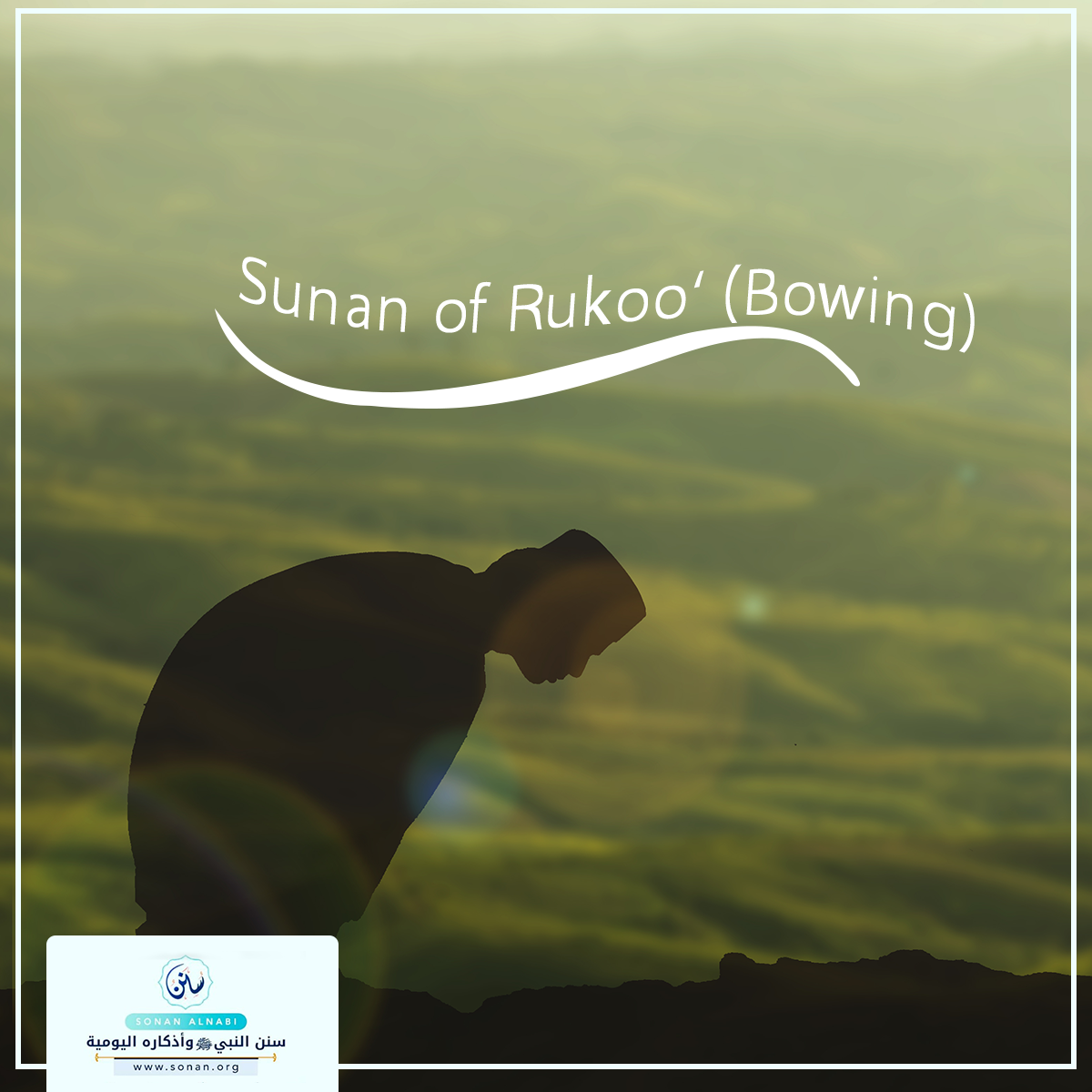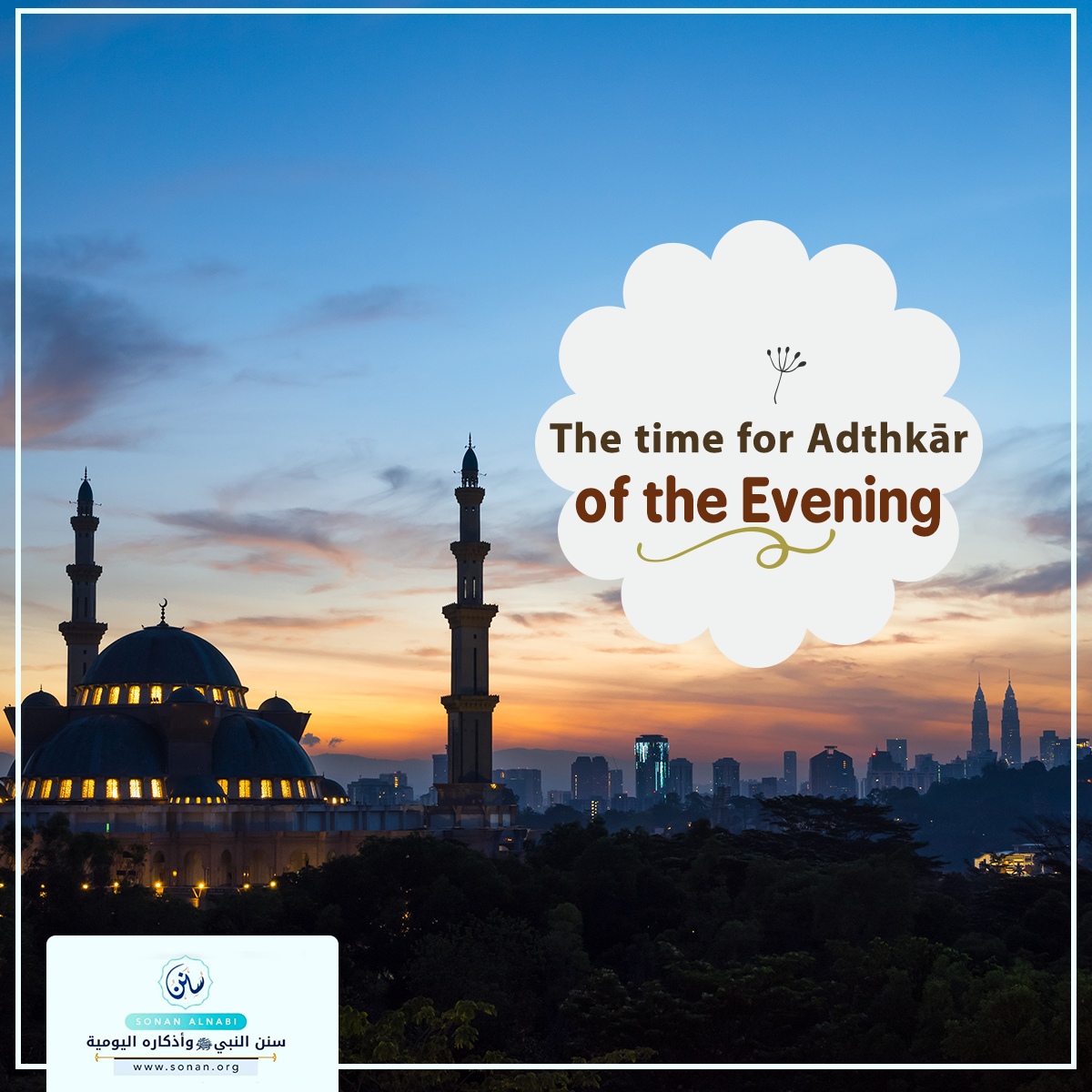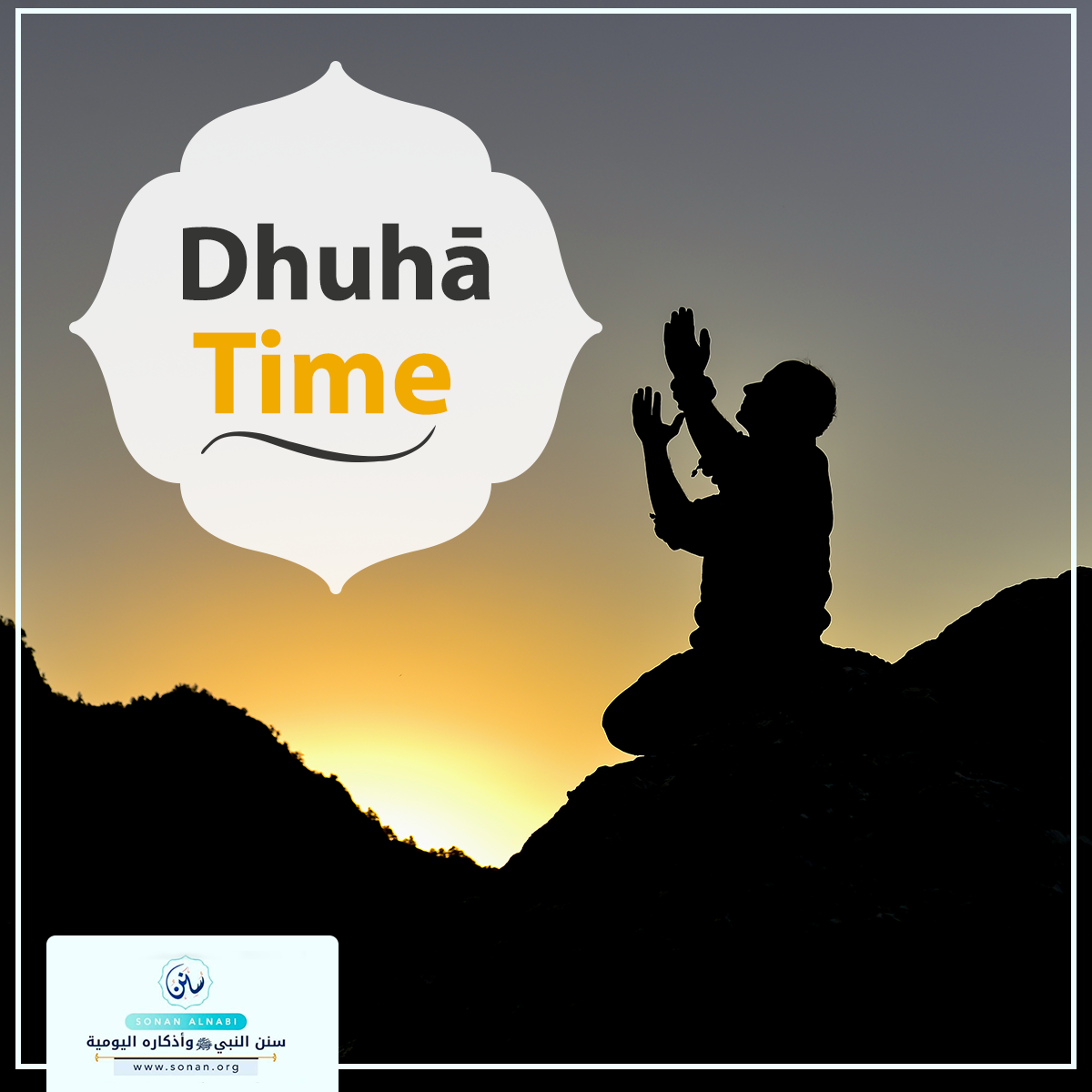“Scholars unanimously recommended the Adthkār after prayer.”
Number 8 of Sunan of Prayer
8) Supplications of Sunnah after obligatory prayers.
By this we mean immediately after Tasleem from obligatory prayers.
Al-Imām Un-Nawawiy, may Allāh have mercy on him, said,
(Al-Adthkār, p.66)
It is recommended to raise one’s voice while saying the supplications after prayer, as the Hadeeth of Ibn ‘Abbāss, may Allāh be
pleased with them, stated,
“Raising one’s voice in Adthkār after completing the obligatory prayers was practiced during the time of the Prophet .”
(Al-Bukhāriy no. 841, Muslim no. 583)
Adthkār after obligatory prayers:
1-
Asking forgiveness three times and then saying,
« اللَّهُمَّ أَنْتَ السَّلاَمُ وَمِنْكَ السَّلاَمُ ، تَبَارَكْتَ ذَا الْجَلاَلِ وَالإِكْرَامِ »
“O Allāh, You are The Peace, and from You comes Peace. Blessed are You, O Owner of Majesty and Honor.”
(Muslim no. 591)
2-
« لاَ إِلهَ إِلاَّ اللّهُ وَحْدَهُ لاَ شَرِيكَ لَهُ ، لَهُ الْمُلْكُ وَلَهُ الْحَمْدُ وَهُوَ عَلَى كُلِّ شَيْءٍ قَدِيرٌ، لاَ حَوْلَ وَلاَ قُوَّةَ إِلاَّ بِاللّهِ، لاَ إِلهَ إِلاَّ اللّهُ، وَلاَ نَعْبُدُ إِلاَّ إِيَّاهُ، لَهُ النِّعْمَةُ وَلَهُ الْفَضْلُ ، وَلَهُ الثَّنَاءُ الْحَسَنُ ، لاَ إِلهَ إِلاَّ اللّهُ مُخْلِصِينَ لَهُ الدِّينَ ، وَلَوْ كَرِهَ الْكَافِرُونَ »
“There is no God but Allāh alone, with no partner or associate. His is the kingdom and His is the praise, and He has power over everything. There is no power nor strength except with Allāh. There is no God but Allāh. We worship no one but Him alone. He owns all blessings, excellence, and the best of praise. There is no God but Allāh, to Whom we devote our sincere religion, even if the disbelievers dislike it.”
(Muslim no. 596)
3-
« لاَ إِلهَ إِلاَّ اللّهُ وَحْدَهُ لاَ شَرِيكَ لَهُ ، لَهُ الْمُلْكُ وَلَهُ الْحَمْدُ وَهُوَ عَلَى كُلِّ شَيْءٍ قَدِيرٌ ، اللَّهُمَّ لاَ مَانِعَ لِمَا أَعْطَيْتَ، وَلاَ مُعْطِيَ لِمَا مَنَعْتَ ، وَلاَ يَنْفَعُ ذَا الْجَدِّ مِنْكَ الْجَدُّ »
“There is no God but Allāh alone with no partner or associate. His is the kingdom and his is the praise, and He has power over everything. O Allāh, none can prevent what You have willed to bestow, and none can give what You hold back, and hard efforts by anyone for anything cannot benefit one against Your will.”
(Al-Bukhāriy no. 844, Muslim no. 593)
4-Then, it is Sunnah is to praise Allāh using one of the following formulae:
« سبحان الله » ثلاثا وثلاثين مرَّة ، و « الحمد لله » ثلاثا وثلاثين مرَّة، و « الله أكبر » ثلاثا وثلاثين مرَّة، وتمام المائة : « لا إله إلا الله وحده لا شريك له له الملك وله الحمد وهو على كل شيء قدير »
“Subhān Allāh,” (Glory be to Allāh) thirty three times, “Al-Hamdu Lillāh,” (Praise be to Allāh) thirty three times, “Allāhu Akbar,” (Allāh is the Greatest) thirty three times, and then completing the hundred with “Lā Ilāha Illā Allāh Wahdahu Lā Shareeka Lah, Lahu Al-Mulku Wa Lahu Al-Hamdu Wa Huwa ‘Ala Kulli Shay’in Qadeer,” (There is no God but Allāh alone with no partner or associate. His is the kingdom and his is the praise, and He has power over everything).
Abu Hurayrah (ABPWH) reported that the Prophet (PBUH) said,
مَنْ سَبَّحَ اللّهَ فِي دُبُرِ كُلِّ صَلاَةٍ ثَلاَثاً وَثَلاَثِينَ، وَحَمِدَ اللّهَ ثَلاَثاً وَثَلاَثِينَ ، وَكَبَّرَ اللّهَ ثَلاَثاً وَثَلاَثِينَ، فَتِلْكَ تِسْعَةٌ وَتِسْعُونَ ، وَقَالَ تَمَامَ الْمِائَةِ: لاَ إِلهَ إِلاَّ اللّهُ وَحْدَهُ لاَ شَرِيكَ لَهُ، لَهُ الْمُلْكُ وَلَهُ الْحَمْدُ وَهُوَ عَلَى كُلِّ شَيْءٍ قَدِيرٌ , غُفِرَتْ خَطَايَاهُ وَإِنْ كَانَتْ مِثْلَ زَبَدِ الْبَحْرِ
“He who says after every prayer, ‘Subhān Allāh,’ (Glory be to Allāh) thirty three times, ‘Al-Hamdu Lillāh,’ (Praise be to Allāh) thirty three times, ‘Allāhu Akbar,’ (Allāh is the Greatest) thirty three times, and completes the hundred with, ‘Lā Ilāha Illā Allāh Wahdahū Lā Sharika Lah, Lahu Al-Mulku Wa Lahu Al-Hamdu Wa Huwa ‘Ala Kulli Shay’in Qadeer,’ (There is no God but Allāh alone with no partner or associate. His is the kingdom and His is the praise and He has power over everything), will have all his sins forgiven even if they were as abundant as the foam on the surface of the sea.”
(Muslim no. 597)
« سبحان الله » ثلاثا وثلاثين مرَّة ، و « الحمد لله » ثلاثا وثلاثين مرَّة ، و « الله أكبر » أربعا وثلاثين مرَّة
“Subhān Allāh,” (Glory be to Allāh) thirty three times, “Al-Hamdu Lillāh,” (Praise be to Allāh) thirty three times, “Allāhu Akbar,” (Allāh is the Greatest) thirty four times.
Ka‘b Ubn ‘Ujrah (ABPWH) narrated that the Prophet (PBUH) said,
“There are some statements after every obligatory prayer the performers of which will never be caused disappointment; making Tasbeeh (saying “Subhān Allāh.”) thirty three times, making Tahmeed (saying “Al-Hamdu Lillāh.”) thirty three times, and making Takbeer (saying “Allāhu Akbar.”) thirty four times.”
(Muslim no. 596)
« سبحان الله » خمسا وعشرين مرَّة ، و « الحمد لله » خمسا وعشرين مرَّة ، و « الله أكبر » خمسا وعشرين مرَّة، و « لا إله إلا الله » خمسا وعشرين مرَّة
“Glory be to Allāh,” twenty five times, “Praise be to Allāh,” twenty five times, “Allāh is the Greatest,” twenty five times, and “There is no God but Allāh,” twenty five times.
This formula was reported by At-Tirmidthiy through ‘Abdillāh Ibn Zayd (ABPWH) . (At-Tirmidthiy no. 3413)
« سبحان الله » عشر مرَّات، و « الحمد لله » عشر مرَّات ، و « الله أكبر » عشر مرَّات
“Glory be to Allāh,” ten times, “Praise be to Allāh,” ten times, and “Allāh is the Greatest,” ten times.
These formulae were reported in the Hadeeth of ‘Abdillāh Ibn ‘Amr, may Allāh be pleased with them both. (At-Tirmidthiy no. 3410)
As stated earlier, the rule regarding acts of worship or supplications that were reported in different forms or formulae, is that it is Sunnah to occasionally alternate between these forms or formulae.
It is Sunnah to use the fingers for counting when making Tasbeeh. Both Ahmad and At-Tirmidthiy reported that the Prophet (PBUH) said, “Count Tasbeeh using your fingers, for verily they will be questioned and made to speak.” (Ahmad no. 27089, At-Tirmidthiy no. 3486)
5- Reciting Āyat Al-Kursiy (The Verse of the Throne):
Abu Umāmah (ABPWH) narrated that Allāh’s Messenger (PBUH) said,
“Whoever recites Āyat Al-Kursiy after every obligatory prayer, nothing is between him and Paradise but death.”
(Sunan An-Nasā’iy Al-Kubra no. 9928)
6- Reciting Al-Mu‘awidthatayn (i.e. Soorat Il-Falaq no. 113, and Soorat In-Nās no. 114)
‘Uqbah Ubn ‘Āmir (ABPWH) narrated,
“The Messenger of Allāh (PBUH) commanded me to read the Mu‘awwidthatayn after every prayer.”
(Abū Dāwood no. 1525)
These were different types of Sunan that are recommended to be applied by the Muslim. Yet we are still proeeding with the topic of “Sunan of Fajr Time”. We mentioned these Sunan, however, as they are related to Fajr prayer as well as all other prayers, and Allāh knows best.
related cards
Browse Islamic cards

